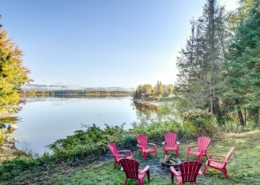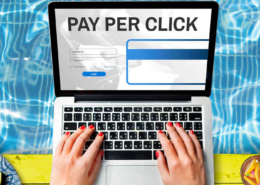How to Start an Airbnb Business: 14 Steps to Building a Thriving Venture
If you’re interested in starting an Airbnb business but aren’t sure how to get started, the good news is that you don’t need any specialised skills to do so. Continue reading to understand the important stages that will set you up for success, beginning with selecting the ideal property and ending with making it ready for guests.
Launching an Airbnb company doesn’t need advanced knowledge. Yes, finding a home and making it a vacation rental ready for guests takes time. All the preparation will be worthwhile because of the gratifying experience, however.
Here’s how to launch an Airbnb business from scratch if the real estate industry is calling your name.
Is It Profitable to Have an Airbnb?
It may be rewarding to launch an Airbnb business from a personal and professional standpoint. Along with making new friends from all around the globe, it may be financially rewarding.
Before the COVID-19 pandemic, an Airbnb host could earn just over $900 per month, according to online data. It’s encouraging to see that travel has resumed. Our data, which we shared in our 2021 industry trends report, shows that the average nightly rate has already recovered to 2019 levels.
Additionally, analysts predict that as travel resumes, there will be a rise in bookings. Brian Chesky, the CEO of Airbnb, predicted that the company’s vacation rental platform will need millions of additional hosts to keep up with the soaring demand for reservations. So, even after taking everything into account, starting an Airbnb company may still be successful.
14 Steps to Building a Thriving Airbnb Business
Without a step-by-step method, starting an Airbnb company may rapidly become daunting. It is less likely that you will make an expensive error by breaking it down into smaller, more manageable stages. The following 14 procedures will enable you to launch and develop your new company into a profitable Airbnb business. We’ve selected them to assist you in starting an Airbnb business.
Useful forums and blogs for Airbnb owners.
- 1. Define your budget
- 2. Find a suitable real estate market
- 3. Search for a property with great income potential
- 4. Analyze the projected ROI
- 5. Decide how you will finance your property
- 6. Obtain legal permission and licenses
- 7. Register for taxes
- 8. Get vacation rental insurance
- 9. Prepare your vacation rental for guests
- 10. Invest in high-quality essential amenities (and add extra touches)
- 11. Find the most suitable vacation rental platform
- 12. Automate your routine hosting operations
- 13. Monitor your business performance
- 14. Build your brand
1. Define your budget
Determine how much you are willing to spend on buying a house or setting up an existing one before starting your search for one. Additionally, keep in mind that you will need to equip the home and that there may be ongoing charges like cleaning or insurance for holiday rentals. Therefore, while determining how much you can afford to spend, keep these costs in mind.
2. Find a suitable real estate market
When looking for a market where you may invest in a vacation rental home, there are a few things to consider. These consist of:
Tourist demand
You must do a thorough study on how a certain location may affect demand. Cities with distinctive characteristics and tourist attractions, for instance, can boast year-round demand. This isn’t always the case, though.
Your demand will line up with these dates on the calendar, for instance, if visitors come to a city to attend a certain event. However, demand will often vary as the seasons change.
Local rules and regulations
Local governments all around the world have begun to enact laws and guidelines governing short-term rentals. While some localities have outright bans on holiday rentals, others have strengthened their regulations. Therefore, it is advisable to research the viability of your endeavour before starting an Airbnb business by visiting local government websites and other internet resources.
3. Search for a property with great income potential
Your income potential will be impacted by both the property itself and the real estate market. Take into account the following factors to assist you in locating the most suitable property with excellent earning potential:
Property’s location
Is it simple to get to the contested property? Is it accessible by many modes of transportation? Are there any businesses, restaurants, pubs, or other points of interest nearby? Before beginning your investment in a particular property, you must provide answers to these questions. Your property’s accessibility, proximity to amenities, and consistent demand will all help your cash flow throughout the year. How to find the best Airbnb location read here.
Property’s type and size
Once you’ve established your spending limit, you can use it as a guide to determine the kind and size of property you can afford. A single-story family home with three stories and a studio apartment can both be profitable vacation rentals. Simply put, the type and size of the property shouldn’t be more expensive than you planned. For smaller houses, you may instal a bunk bed or sleeper sofa to offer more sleeping space while you can charge more per night for larger accommodations.
Type of travellers the property will attract
Travellers of various categories are drawn to various types of properties. For instance, it is better to invest in larger properties, preferably in a quiet neighbourhood, if your objective is to host families travelling with young children or larger groups.
On the other side, if you want to draw in younger visitors or couples, a smaller apartment or condo in a busy metropolitan area would be preferable. Additionally, if you want to draw in business visitors, you should seek a location that is near public transportation and conference centres while yet being able to provide a calm setting.
4. Analyze the projected ROI
The next step is to compare listings from other companies in a certain location to see how much you may make on the chosen property. In addition to monitoring what others are asking, you should also consider starting costs, continuing expenditures, and the anticipated monthly occupancy rate. In this manner, you may determine if the property will provide a positive cash flow.
Alltherooms, AirDNA, and Transparent are a few examples of data analytics tools that can assist with competitive analysis and ROI estimation. In summary, these software programmes may assist you in staying current with market trends and advancements. These tools will greatly improve your comprehension of the sector, from analytics to market insights to property forecasts.
5. Decide how you will finance your property
If you need to get finance to purchase an investment property, you have a few possibilities. These consist of :
Cash-out refinance
This strategy works best if you have a high credit score and a lot of equity in your primary residence. In this situation, cash-out refinancing may be used to purchase a vacation rental property. You may utilise the cash you save by taking for a larger mortgage to pay for a down payment on your short-term rental property.
Reverse mortgage
For people who are 62 years or older, a reverse mortgage can be the best option. A reverse mortgage provides you access to the whole amount and you don’t have to pay it back until you sell the house or vacate, in contrast to a standard mortgage, which must be repaid in monthly payments. Just keep in mind that the longer the loan is left due, the more interest will accrue.
Home equity lines of credit
You may use a home equity line of credit to buy a short-term rental property if you have enough equity in your present house. This will allow you to maintain your existing mortgage rate while obtaining a new mortgage with alternative terms and conditions.
Traditional vacation rental financing
You may always apply for a loan through a bank or other credit institution if you prefer a more traditional method of financing a property. You could have to make a down payment up front and then pay the remaining sum over 15 or 20 years in monthly payments.
6. Obtain legal permission and licenses
Make sure you have the legal authorization to rent out a short-term rental property before you start hosting on Airbnb. To be on the safe side, follow these steps:
- Check your city’s Airbnb legal guidelines to see if there are any restraints.
- Find out about the zoning laws and restrictions in the region where you intend to do business.
- To assist you with launching your Airbnb company, speak with a business attorney.
- Make sure you register your company and get the necessary permits before hosting short-term rentals.
7. Register for taxes
An Airbnb company owner must pay taxes just like any other business owner. It’s crucial to do your study on the various tax rates and kinds that must be paid, as well as the deductions that owners of short-term rentals are entitled to. Therefore, to aid you in identifying any taxes and fees you will need to pay, visit a tax professional that specialises in short-term rentals.
8. Get vacation rental insurance
While services like Airbnb and Vrbo do provide certain safety nets, things like robbery and malicious property damage are not covered. In a nutshell, the level of protection provided by these rules is insufficient, particularly in the face of more severe problems.
Insurance tailored to the needs of vacation rental enterprises is recommended, even if the premiums are up to three times more than those for a typical property. Prices for annual vacation rental insurance in the United States typically range from $2,000 to $3,000. However, if your home is in an area frequented by tourists, such as Florida, your asking price may be significantly higher.
9. Prepare your vacation rental for guests
Maintenance, repairs, and thorough cleaning must be finished before visitors may arrive. If you want to start taking reservations, you’ll also need to put up a streamlined check-in system.
Guests may lose interest if the check-in procedure becomes difficult or tedious. Follow these guidelines to make your visitors’ arrival go off without a hitch:
- Put in a smart lock or an Airbnb lockbox to let guests check themselves in.
- Before your next set of visitors arrives, be sure to update the passcode on your lock box or smart lock.
- Provide your visitors with easy-to-understand directions to the rental property.
10. Invest in high-quality essential amenities (and add extra touches)
You need to ensure that your visitors have all they need throughout their stay at your vacation rental. Visitors shouldn’t be expected to provide their amenities. Guest dissatisfaction is likely if your rental is lacking in basic conveniences like a fully stocked kitchen, clean bathrooms, and a comfortable bed. Inadequate facilities will result in an unsatisfactory stay for guests and low ratings.
What Airbnb amenities you must have?
Necessities must be met, but niceties go a long way toward guaranteeing a pleasant visit. If you want to come across as a kind host, it helps to go above and above in the comforts you provide. Extras may consist of the following features:
- A hot tub
- Wi-Fi boosters
- A workstation
- Board games
- Smart devices
- Bathrobes and slippers
- Luxury toiletries.
Making some kind of starter kit to help someone settle in is also recommended. This kind of thoughtful addition distinguishes professional hosts from those just starting. An average visit may be elevated to something special with the help of a welcome basket stocked with tasty treats. Treat it as an opportunity to show off your imagination and wow your visitors.
Here is a checklist to assist you to put together an accommodating welcome kit for your visitors.
- Create a letter of introduction that will make your renters feel special and at home.
- Put together a welcome packet that includes basic instructions like how to operate the oven and an alarm clock, as well as contact details like your phone number and email address.
- Create a set of guidelines outlining the acceptable and unacceptable behaviours on your property.
- Guests who are treated to a thoughtful gesture upon arrival are more likely to rate their stay highly.
11. Find the most suitable vacation rental platform
When everything at your rental home is in order, you can focus on promoting it on a website where people may book short-term stays (s). At this stage, you’ll follow the lead of your intended demographic and market.
You should be aware, however, that making an Airbnb listing is a time-consuming procedure that takes some careful planning and inventiveness. It should seem professional and give off the right impression of your rental. Keep the following in mind while you create your listing:
- Get a professional photographer to shoot pictures of your rental property that emphasise its best qualities and benefits.
- Write an in-depth description of your rental that will appeal to prospective visitors by emphasising the property’s most salient amenities and characteristics.
- Create a listing title that captures the essence of your property and what it has to offer potential renters.
- Make yourself known by populating a host profile with information about you.
Discover the best vacation rental sites for hosts and travelers.
12. Automate your routine hosting operations
By automating repetitive tasks associated with hosting many sites, you can free up time and energy to devote to what truly matters. You can focus on improving the customer experience and expanding your company by adopting a vacation rental management system like Hosty. Saving time and energy is a top priority, and Hosty will help you do just that.
- Taking care of various listings and accounts across the most popular vacation rental websites
- Better manage guest communication with automatic templates and prompted messages thanks to the consolidated inbox.
- Eliminating human error from guest-review automation
- Incorporating a Direct Booking Management Software Suite to handle incoming reservations
- By linking your Stripe account with Hosty, you may receive payments and generate invoices.
- Facilitating job delegation and team communication via the sharing of daily schedules.
13. Monitor your business performance
Having a well-thought-out business strategy with specific, measurable objectives is essential for every company’s success. Metrics and outcomes monitoring, however, is not a one-and-done job. To ensure your company is functioning as planned, you must first identify your Key performance metrics and build a methodology. The good news is that hosts may utilise the reporting tools and the Dashboard feature of vacation rental software like HostyApp to get insights into the operation’s performance.
Incorporating this kind of software into your operations will allow you to monitor the most important indicators of your company’s success and the flow of information with your customers. To name a few of them:
- Occupancy rate
- Average daily revenue (ADR)
- Revenue per available property/listing (Rev PAL)
- Number of inquiries for the current month
- Average response time.
More about key metrics for Airbnb investment.
The format of this real-time data makes it easy to understand at a glance and use to make sound decisions.
14. Build your brand and market your short-term rental to reach new heights
Consistent and well-planned advertising is a critical factor in achieving lasting success. Maintaining a competitive edge is essential if you want to earn money on Airbnb. Therefore, monitoring comparable postings is essential. Before launching a new brand or marketing campaign, it’s important to study the competition and understand how they’re presenting themselves.
To provide just two examples, you may think about making a website and a logo for your company. Utilizing pay-per-click (PPC) advertisements on Google and social media, developing an email marketing plan, and forming partnerships are further options.
Other useful suggestions for promoting your vacation rental are as follows.
- To maximise your chances of receiving bookings, it is advisable to post your property on many short-term rental websites.
- To advertise your rental property online, you need to create company profiles on social media.
- Construct a website for your company to facilitate customer reservations directly.
- Join together with neighbourhood establishments to raise your rental profile in the marketplace and provide memorable experiences for your visitors.
Discover how to use social media to advertise Airbnb property.
Final Thoughts
There is a lot of preparation that goes into starting a vacation rental company. There is a lot to do before you can start welcoming your first guests, such as choosing a suitable property and learning the ins and outs of the local laws, regulations, and taxes.
That’s why it’s smartest to split up the full process of establishing an Airbnb business into more manageable chunks. This way, you won’t forget something crucial or become down on yourself if you make a plan.


















